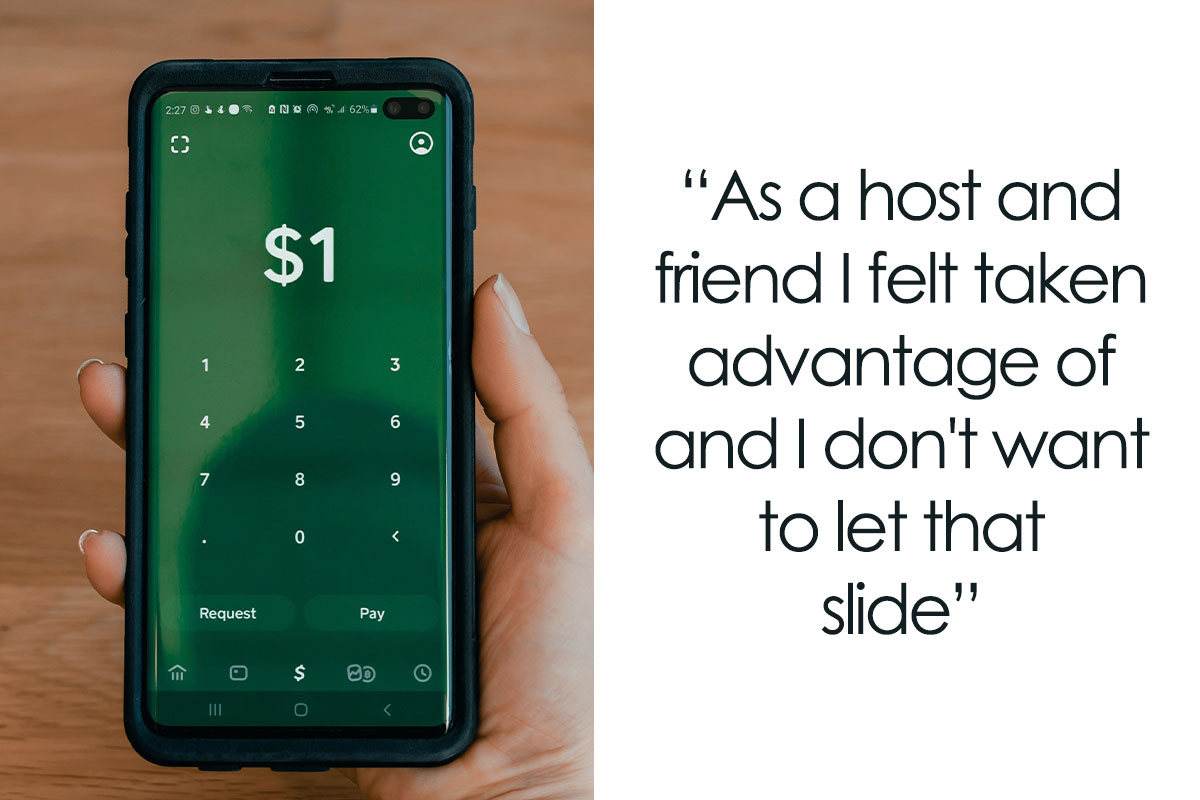
“Like A Slap In My Face”: Woman Hosts Friend For Free For 3 Days, Gets Venmo Request For $6
InterviewWe can never truly know someone other than ourselves. It’s impossible to get inside another person’s head and see what they’re really thinking of. All we can do is try to determine their character through their actions and hope for the best. But, as Reddit user FixConstant8266 found out, this road can sometimes lead to disappointment.
A few days ago, she made a post on the subreddit ‘Mildly Infuriating‘ about a recent visit she had from one of her friends. The woman went above and beyond to ensure that her friend had a good time, including cooking them food and driving them around. However, after the friend left, she herself received an insulting Venmo request.
This woman hosted her friend for three days and went the extra mile to make sure she had a delightful stay
Image credits: Tech Daily (not the actual photo)
But after the friend left, she received an insulting Venmo request
After her story went viral, the woman issued a few updates on the situation
Image credits: Rachel Claire (not the actual photo)
Image credits: FixConstant8266
Sometimes, accounting for your every penny can come back to haunt you
It sounds like the Redditor’s friend has been tracking every penny of her spending. While this can help a person to stay on top of their finances, it can also lead to unexpected emotional side effects.
“When we part with our hard-earned money, the actual financial cost isn’t the only thing that matters,” Eva Krockow, a German-born, UK-dwelling psychologist and decision researcher, wrote.
Indeed, psychologist Dan Ariely argues that consumer experiences are shaped by additional factors, including the hassle of making a payment and the pain of paying.
The hassle of making a payment describes the effort associated with making a purchase and typically involves considering the payment method. For example, paying with cash may seem more cumbersome than using contact-free card payments. This is because it requires customers to carry a wallet, count out notes and coins, and ensure they receive the right amount of change. Surely a simple credit card scan is a lot less to handle?
The pain of paying refers to a ‘moral tax’ or emotional side effects that come with each payment we make. It refers to the guilt experienced when spending money or how we feel about our purchase after having parted with our cash. The pain of paying is often influenced by the timing of a purchase. For instance, many consumers experience a greater pain of spending if a purchase is made at the end of the month and happens to deplete their monthly budget, a phenomenon known as the “bottom-dollar effect.”
Image credits: Ivan (not the actual photo)
Gen Z and millennials are losing friends over spending habits
If we were to zoom out for a minute, money is getting in the way of younger generations’ friendships.
According to one study, more than one-third of Gen Z and millennials (36%) have a friend who drives them to overspend. This leads many to take on debt and in some cases, end friendships to protect their finances.
Among millennials with a profligate friend, 43% said they typically overspend on dining out or drinks and nights out (37%). Others reported more elaborate events, like trips and vacations (22%) or birthday celebrations (21%) are driving up costs. Similarly, Gen Z blamed dining out (37%) as the main reason for their overspending, while some from the cohort said they typically overspend with their friend on clothing (36%), drinks and nights out (32%), trips and vacations (24%), and even self-care (20%), including massages and manicures.
Of millennial respondents who have a spendy friend, someone who drives them to spend more money than they can afford, 88% have taken on debt as a result of being with that friend. The same is true for 80% of Gen Z respondents who have a friend that drives them to overspend. Millennials are worse off, however, with 15% admitting they’ve taken on $500 or more in debt for this, compared to just 2% of Gen Z respondents in the same boat.
There’s nothing wrong with wanting to protect your wallet when you’re out with friends. But keep in mind that so do they.
Image credits: Thirdman (not the actual photo)
People who read about the ordeal shared their suggestions for the woman on how to proceed forward
As well as other reactions to the fallout
Some said they had similar experiences
And the woman came back with one more update
Image credits: FixConstant8266

 Dark Mode
Dark Mode  No fees, cancel anytime
No fees, cancel anytime 





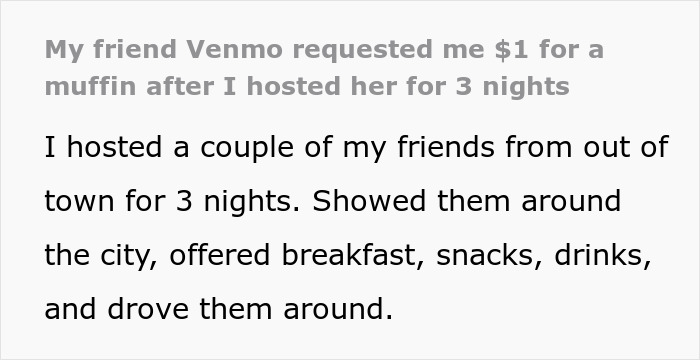
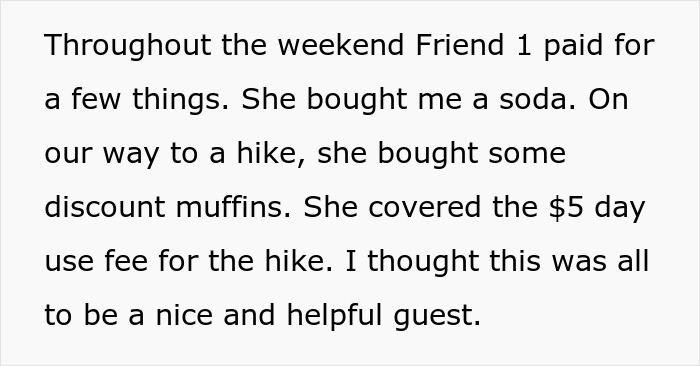
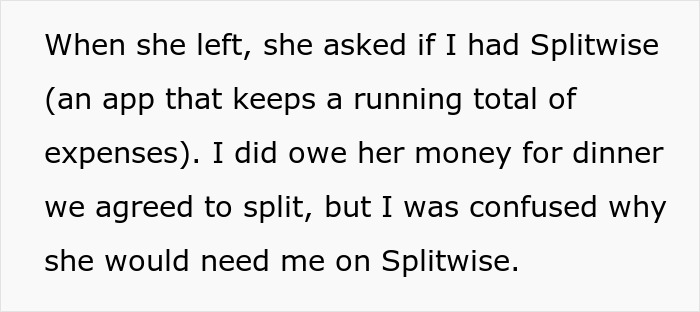
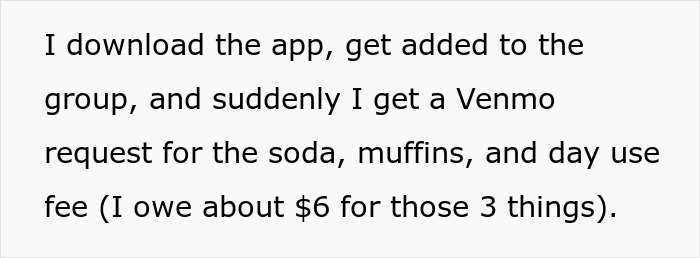

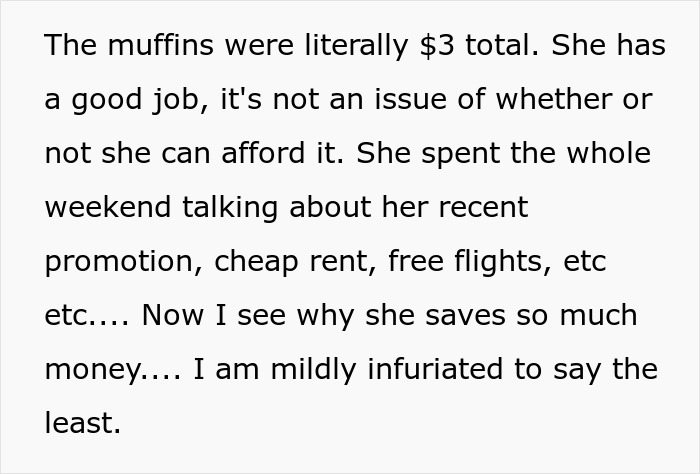
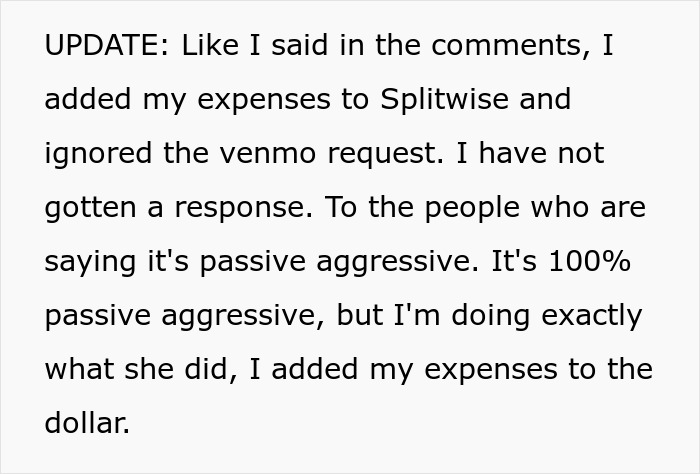
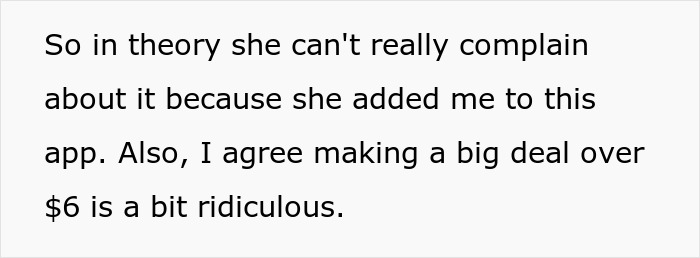

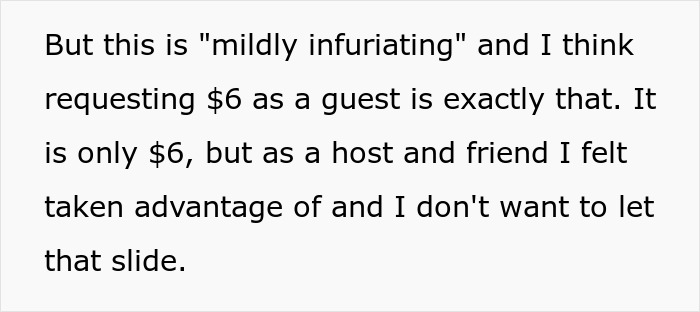
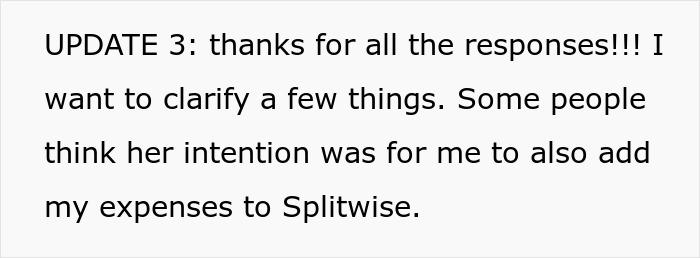
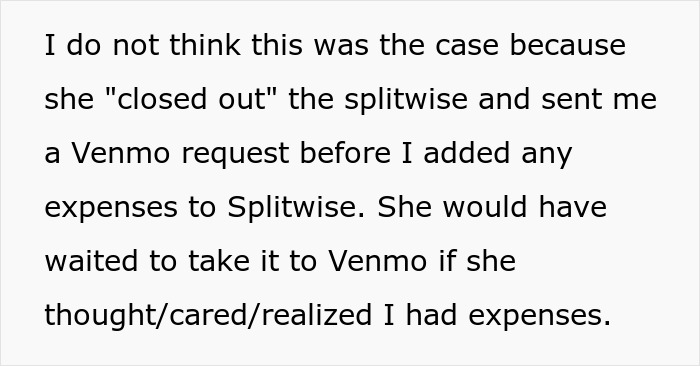






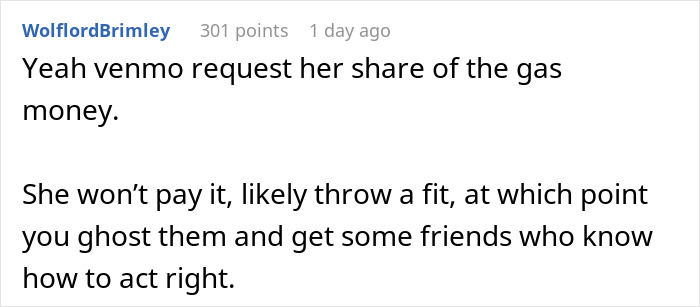

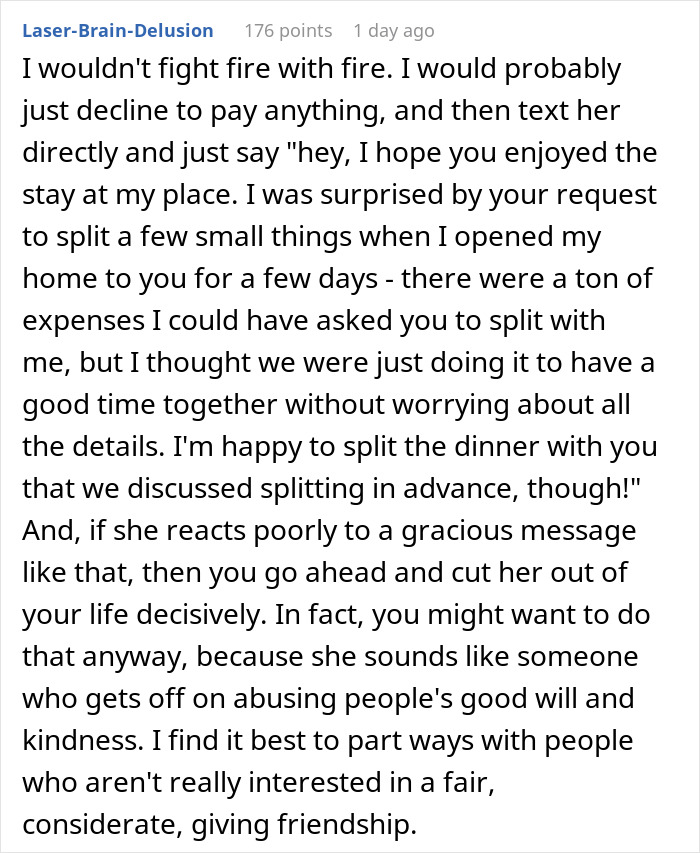



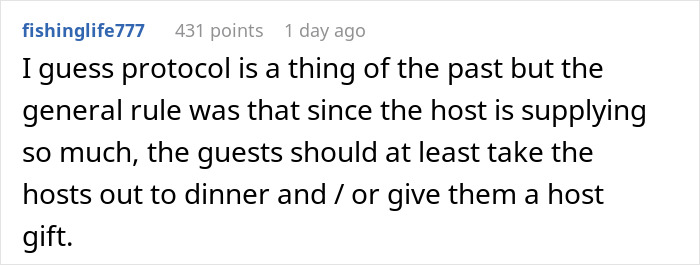







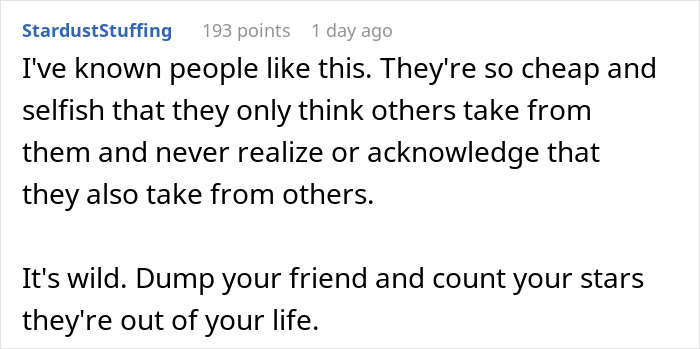












0
0